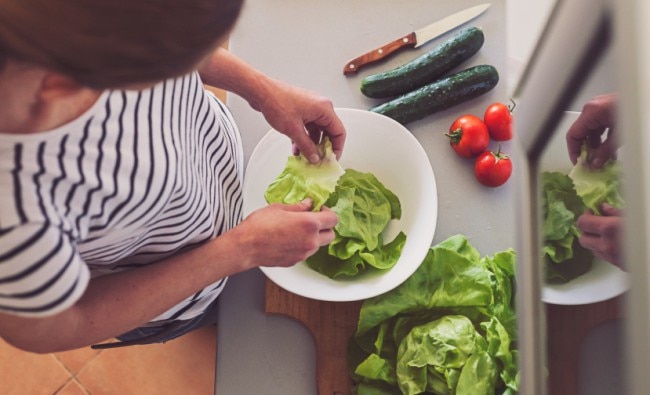There are many deciding factors when it comes which foods we eat, whether it’s for convenience, medical necessity, religion, training or conditioning, or purely for enjoyment. Our dietary needs are unique to our lifestyles, activity levels and health statuses–or they’re adapted to meet preferences or restrictions. But there’s a common thread woven between us as we consider what to put on our plates. Many of us wonder: could our diets—and choosing eco-friendly products—play a part in supporting positive change for our planet?
Maternal instinct
Just as any good mom would, Mother Earth nurtures us and offers resources for us to be healthy and well. It’s our responsibility to return the favor by protecting these precious gifts. When deciding on healthy meal planning, the less waste, energy, packaging and transport from farm to table, the better.
The United Nations (UN) reports that 3 billion tons of food is wasted every year, while about 2 billion of the world’s population is undernourished or hungry. These staggering numbers are evidence of a disconnect in our food system and the value we place on it.
Plants aplenty
A plant foods diet is not only a tasty and nutritious approaching to eating, but one which also supports conservation.
Consider that meat, poultry, dairy or eggs originate from animals that consume ecological resources themselves. The Food and Agriculture Organization (FAO) reports that about 8 kilograms (kg) of feed produces only an edible 8 kg of chicken, 2 kg of pork, or 1 kg of beef. Additionally, the United States Geological Survey (USGS) estimates it takes about 100 to 150 gallons of water to produce a pound of corn or potato, while approximately 1,800 gallons are necessary to generate a pound beef at market.
A recent study investigating the greenhouse emissions used by 55,504 subjects in the “EPIC-Oxford cohort” found significance between eating plant-based foods and eating meat. The results showed:
- 19 kg of carbon dioxide equivalents were released per day (kgCO2e/day) for high meat-eaters
- 63 kgCO2e/day for medium meat-eaters
- 67 kgCO2e/day for low meat-eaters
- 81 kgCO2e/day for vegetarians
- 89 kgCO2e/day for vegans
The more you know
We’re sure you’ve heard it before, but knowledge is power. This means asking questions and demanding answers empowers us to make educated decisions and mold an energy-smart agricultural system. The organic food industry, for example, is built on the principle of preserving the environment, encouraging biodiversity and promoting the longevity of natural resources. We can certainly get on board with that! These ideals can also be upheld with conventional farming practices which use unique sourcing, supply chain, harvesting and transportation methods, to maximize efficiency.
Retail therapy
Have a pen or pencil? Jot down this grocery list of compassionate items that you can feel great about throwing in your cart the next time you’re at the store:
- Beans. Black, pinto and garbanzo beans are the most versatile; soybeans can be purchased alone or as tofu or tempeh.
- Lentils. Lentils are easy to mix with warm entrees or to serve as an easy side dish when prepared with herbs and spices.
- Whole grains. Opting for dry brown rice, whole wheat bread, whole grain pasta or quinoa is a smart protein choice, and picking up these items dry (rather than prepared) reduces energy used in transport.
- Fresh fruits and vegetables. Choose whole produce options that are not packaged or bagged.
- Nuts. Almonds are one of the “least-traveled” nuts, grown primarily in the U.S. (whereas most other common tree nuts are grown globally).
- Powdered drinks. Whether you choose protein powder, dry dairy/non-dairy milk or ldrink mixes, the lack of liquid can reduce carbon footprints.
Thinking green and saving green
Other practical ways to be earth-minded include only buying enough food you know you’ll use, or finding alternative uses for products that might be toward the end of their shelf life or left over from a recipe.
It’s time to equate not just cars and airplanes, but also the way we eat, with our carbon footprint. Find small ways to step more gently on our environment using some of these sustainable strategies.
For more information about dietitian services, visit thelittleclinic.com/dietitians

